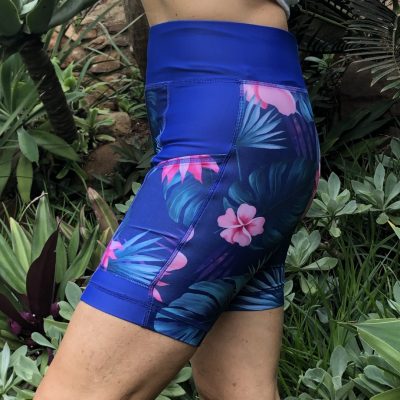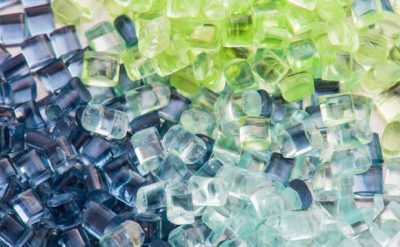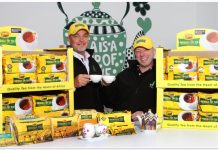Whether you’re deep in the grind of your workout or looking to start a new regime, a little pop of colour works wonders to pep you up. But, while the desire to do something good for your body and mind is so vital, so is minimising your environmental footprint by wearing sustainable active wear.
While on a mission to shop for some new active gear, we recently stumbled across Buyafuthi Recycled Plastic Activewear. The ethically-made range allows you to sweat it out in style and move effortlessly from the gym to coffee with friends in fashion-forward vibes that don’t cost the earth (in more ways than one!).
The brainchild of Durbanite Charly-Carmen Smith, Buyafuthi was created to raise awareness around waste and encourage a more sustainable approach to clothing consumption.

“I’ve been in the clothing industry for years and I’ve seen the amount of waste it contributes to the world. While I’m passionate about fashion and the identity it gives us, I also have a great love for Mother Earth and all its threatened beauty. Growing up, I lived across the road from the beach and even spent a couple of years on the sea sailing with my family. This instilled so much respect for the ocean and its life in me. Sadly, over the years we’ve seen an increase in waste littering our coastlines. I no longer wanted to be a part of the problem but rather part of the solution.”
With this in mind, and having faced a few personal obstacles, Charly saw an opportunity when she found the perfect main component (recycled plastic fabric) and unleashed her creativity. She started an eco-friendly brand that would change not only her life, but the lives of all activewear-loving individuals who slip into a piece of Buyafuthi clothing.

“I started Buyafuthi last year as a side hustle and a means of raising funds for an organization called The Philocaly Trail, which hosts seven-day beach walks to raise awareness around plastic waste. I launched Buyafuthi leggings exclusively to the participants, with a donation from all sales going to the organisation.”
The response was so fantastic that Charly continued to supply, on a small scale, to returning and new customers who’d heard about the brand.
“I was retrenched earlier this year due to Covid-19, but I saw it as an opportunity to focus all my energy on growing Buyafuthi and joining the drive to support small, local, eco-friendly businesses. The clothing industry has become the second highest contributor to waste in the world due to over-saturation of disposable fashion by large retailers, and a lack of customer education on responsible, sustainable fashion. Most fabrics are man-made these days as they can be produced cheaper and faster, feeding the demand for quick turn-around fashion. But, what happens to our clothes once they have reached their shelf life? While most of us may donate to the less fortunate, there are items that are no longer wearable and end up in landfills. Because they are not biodegradable, sadly, they continue to pile up.

“When it comes to fitness and fashion, it’s great that we’re finding ways to de-stress and stay healthy, but when you stop to consider what most activewear is made of, the idea of living in it doesn’t sound so appealing.”
Charly says the majority of leggings and sports bras on the market are made of virgin polyester (plastic derived from petroleum) and is typically treated with chemical dye. The implications to the planet are vast. To make matters worse, we’ve come to view our workout clothes as a form of fast fashion – we buy them often and don’t keep them for very long. Although the development of man-made fabrics has, however, been beneficial in ‘special’ performance clothing like activewear, and there is no escaping the need for these, Charly says there is a need for us to consume more responsibly.

“The last few years has seen an increased interest in the health of our planet. This has led to the development of fabric made from recycled plastic bottles. Not only is this an alternative to environmentally harmful made-made fabrics, but it is creating a source of income for waste collectors while cleaning up our planet. From a sustainable approach, Buyafuthi provides a good quality, long-lasting product, on a small scale. We need to move away from fast-fashion and more towards slow-fashion. Invest more in better quality clothing and less in disposable fast-fashion.”
Using our beautiful coastline and surroundings as her inspiration, Charly hand makes (in her little home sewing room) her unique and colourful activewear using recycled plastic fabric that is designed and printed right here in Durban.

“Buyafuthi is the modern isiZulu word for recycle. When translated, ‘buya’ means come and ‘futhi’ means again. I thought this a fitting name since the fabric we use is made from 82 per cent recycled plastic bottles, the other being 18 per cent spandex, providing for good stretch and comfort. This fabric has natural moisture management and breathable qualities, and with a high chlorine resistance as well as a 50+ UPF UV protection, it’s perfect for activewear.

“I’ve tried to take the most eco-friendly approach in all aspects to the brand, from the trims to the packaging, which is made from seed paper and designed to be recycled as a gift bag. Once it has reached the end of its journey, one can plant it and grow some herbs!”
Details: FB: Buyafuthi Recycled Plastic Activewear IG: buyafuthi_031, call 076 547 6065 or visit www.buyafuthisa.co.za






